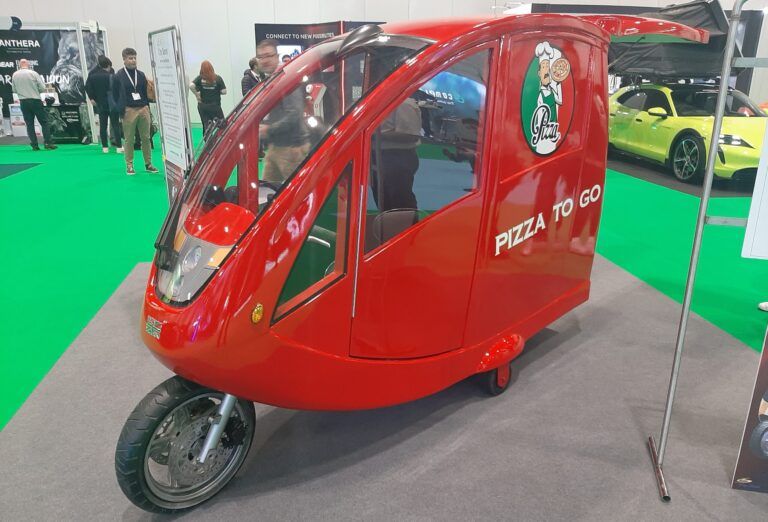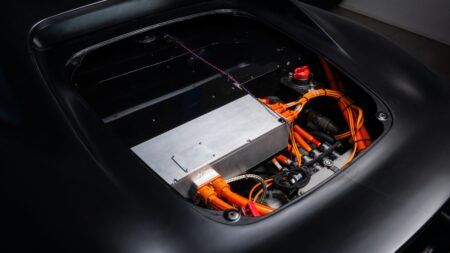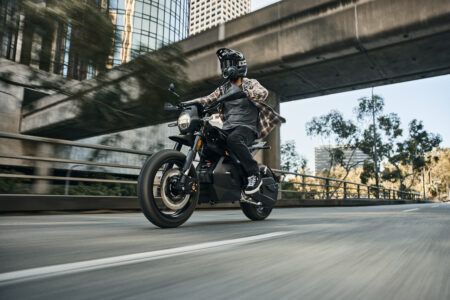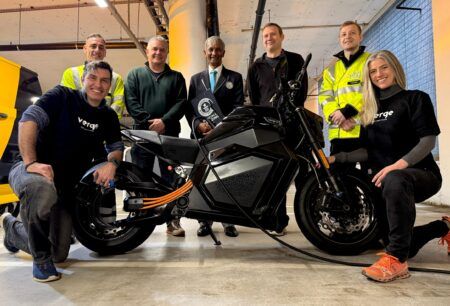Who says you can’t have a little fun while also addressing very real issues in e-mobility, transport, and even healthcare? Inventors (and brothers) Phil and Dick Bevan showcased their City Scoot to E&HV at the London EV Show, which they say has the ability to reduce traffic and improve rider safety.
“We design and make everything in the UK” says Phil Bevan, joking that he developed the City Scoot as a present to himself for turning 65. The City Scoot features an interchangeable carbon battery, a top speed of 65mph, and a four minute charge cycle at 15okWh, it’s not hard to see why there are already 34 currently operating in London.
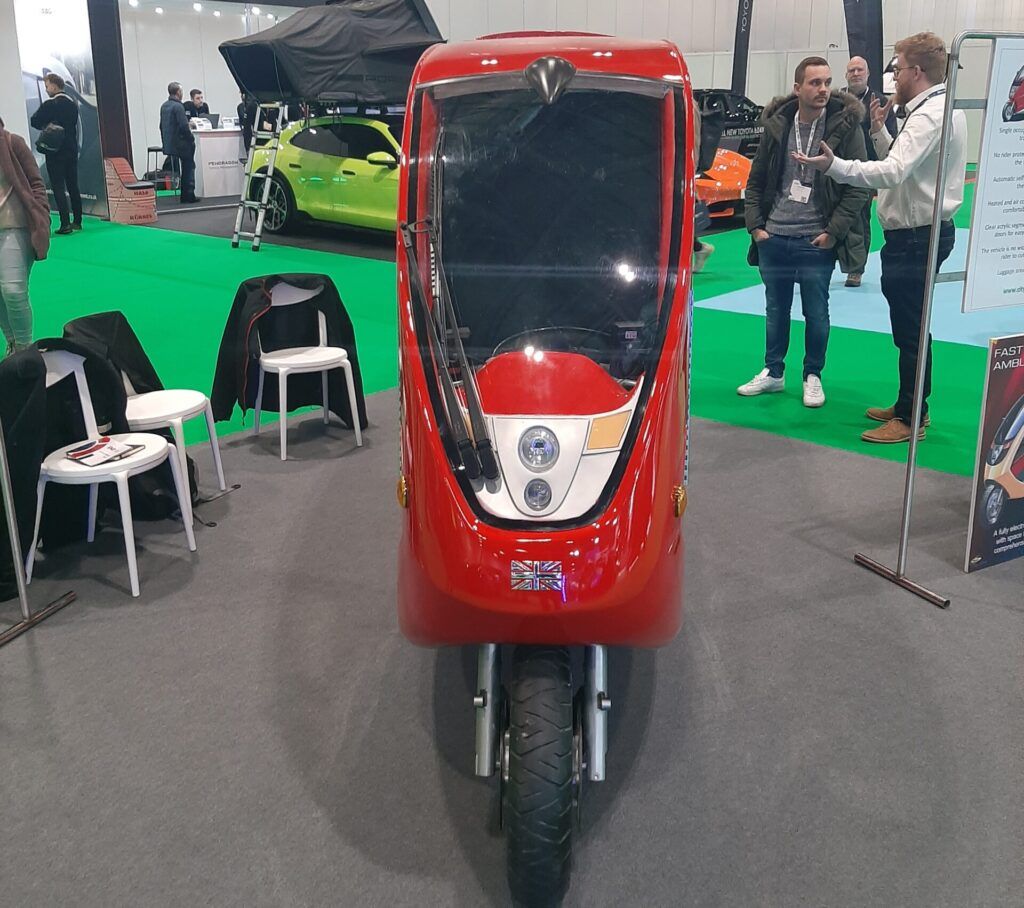
“Carbon batteries don’t self-ignite, they can’t. Lithium batteries can and do,” says Phil Bevan, adding, “Not only that, but the rider is completely shielded from the elements, and we can equip the storage compartment with whatever tools are necessary for the job, be that a grocery delivery company or a paramedic.”
Bevan Davidson International, the company under which the Bevan brothers manufacture the City Scoot, is also responsible for one of the first true electric ambulances in the UK, the IntegroE. “Data pulled directly from the NHS shows our electric ambulances have already travelled 1080 miles for the NHS, and cut wait times down from four and a half hours, to one and a half hours,” comments Dick Bevan.
He says this is because their ambulances are custom designed to actually help paramedics offer extensive emergency treatment on the move; everything from blood testing to over-air triage and X-Ray, because of the savings made in chassis weight.
“Most ambulances essentially use van chassis’ from Europe, but they’re massively cumbersome and slow,” notes Dick. This pertains to the City Scoot because the same principles of safety and efficiency apply. Despite its slight frame, the City Scoot has a load capacity of 700l and a 260 mile range.
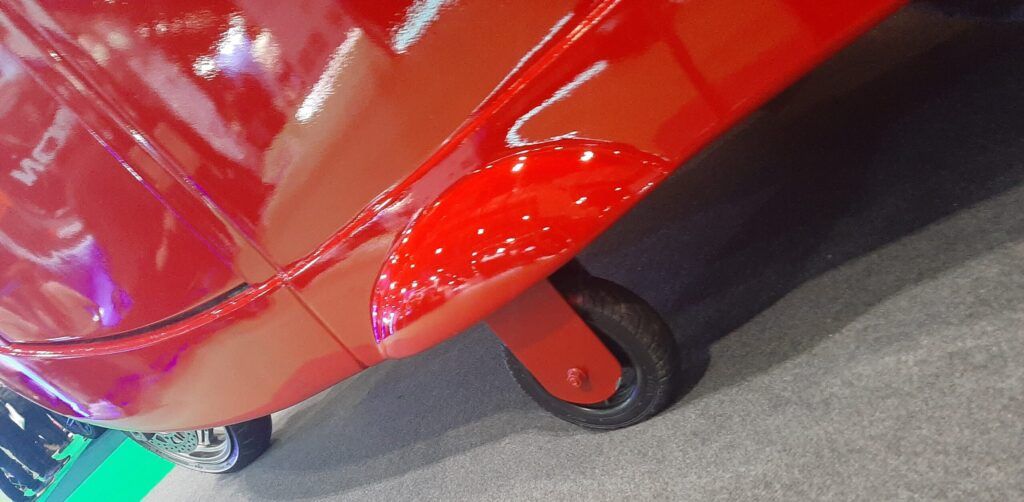
Further, it’s minimum 4 interchangeable batteries each hold a capacity of 8kWh, can be swapped in under two minutes, and have a life expectancy more than triple that of equivalent lithium batteries (15 years vs 5).
The Bevan brothers are now looking at bringing to the market a paramedic-ready version of the Scoot.


